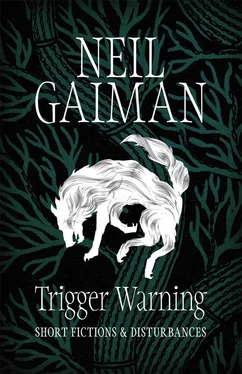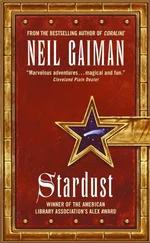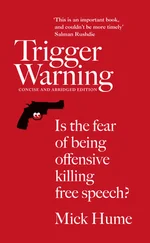Neil Gaiman - Trigger Warning - Short Fictions and Disturbances
Здесь есть возможность читать онлайн «Neil Gaiman - Trigger Warning - Short Fictions and Disturbances» весь текст электронной книги совершенно бесплатно (целиком полную версию без сокращений). В некоторых случаях можно слушать аудио, скачать через торрент в формате fb2 и присутствует краткое содержание. Год выпуска: 2015, Издательство: Headline, Жанр: Старинная литература, на английском языке. Описание произведения, (предисловие) а так же отзывы посетителей доступны на портале библиотеки ЛибКат.
- Название:Trigger Warning: Short Fictions and Disturbances
- Автор:
- Издательство:Headline
- Жанр:
- Год:2015
- ISBN:нет данных
- Рейтинг книги:4 / 5. Голосов: 1
-
Избранное:Добавить в избранное
- Отзывы:
-
Ваша оценка:
- 80
- 1
- 2
- 3
- 4
- 5
Trigger Warning: Short Fictions and Disturbances: краткое содержание, описание и аннотация
Предлагаем к чтению аннотацию, описание, краткое содержание или предисловие (зависит от того, что написал сам автор книги «Trigger Warning: Short Fictions and Disturbances»). Если вы не нашли необходимую информацию о книге — напишите в комментариях, мы постараемся отыскать её.
Trigger Warning: Short Fictions and Disturbances — читать онлайн бесплатно полную книгу (весь текст) целиком
Ниже представлен текст книги, разбитый по страницам. Система сохранения места последней прочитанной страницы, позволяет с удобством читать онлайн бесплатно книгу «Trigger Warning: Short Fictions and Disturbances», без необходимости каждый раз заново искать на чём Вы остановились. Поставьте закладку, и сможете в любой момент перейти на страницу, на которой закончили чтение.
Интервал:
Закладка:
He stared at the casement in the centre of the room. The only way out, and it led to Nothing, to the end of everything.
‘Enough!’ came the voice from beyond the door. ‘My patience is at an end, Balthasar. My cooks shall fry your internal organs tonight.’ There came a loud crunching against the door, as if of something hard and heavy being slammed against it.
Then there was a scream, and then silence.
Luthius Limn’s voice: ‘Is he dead?’
Another voice – Farfal thought it sounded like one of his half brothers – said, ‘I suspect that the door is magically protected and warded.’
‘Then,’ boomed Luthius Limn, decisively, ‘we shall go through the wall.’
Farfal was unfortunate, but not stupid. He lifted down the black lacquer box from the nail upon which his father had hung it. He heard something scuttle and move inside it.
‘My father told me not to move the casement,’ he said to himself. Then he put his shoulder against it and heaved violently, pushing the heavy thing almost half an inch. The darkness that pervaded the casement began to change, and it filled with a pearl-grey light.
He hung the box about his neck. ‘It is good enough,’ said Farfal the Unfortunate, and, as something slammed against the wall of the room, he took a strip of cloth and tied the leather bag that contained all the remaining treasures of Balthasar the Canny about his left wrist, and he pushed himself through.
And there was light, so bright that he closed his eyes, and walked through the casement.
Farfal began to fall.
He flailed in the air, eyes tightly closed against the blinding light, felt the wind whip past him.
Something smacked and engulfed him: water, brackish, warm, and Farfal floundered, too surprised to breathe. He surfaced, his head breaking water, and he gulped air. And then he pushed himself through the water, until his hands grasped some kind of plant, and he pulled himself, on hands and feet, out of the green water, and up onto a spongy dry land, trailing and trickling water as he went.
***
‘The light,’ said the man at Denny’s. ‘The light was blinding. And the sun was not yet up. But I obtained these’ – he tapped the frame of his sunglasses – ‘and I stay out of the sunlight, so my skin does not burn too badly.’
‘And now?’ I asked.
‘I sell the carvings,’ he said. ‘And I seek another casement.’
‘You want to go back to your own time?’
He shook his head. ‘It’s dead,’ he said. ‘And all I knew, and everything like me. It’s dead. I will not return to the darkness at the end of time.’
‘What then?’
He scratched at his neck. Through the opening in his shirt I could see a small, black box, hanging about his neck, no bigger than a locket, and inside the box something moved: a beetle, I thought. But there are big beetles in Florida. They are not uncommon.
‘I want to go back to the beginning,’ he said. ‘When it started. I want to stand there in the light of the universe waking to itself, the dawn of everything. If I am going to be blinded, let it be by that. I want to be there when the suns are a-borning. This ancient light is not bright enough for me.’
He took the napkin in his hand then, and reached into the leather bag with it. Taking care to touch it only through the cloth, he pulled out a flute-like instrument, about a foot long, made of green jade or something similar, and placed it on the table in front of me. ‘For the food,’ he said. ‘A thank-you.’
He got up, then, and walked away, and I sat and stared at the green flute for so long a time; eventually I reached out and felt the coldness of it with my fingertips, and then gently, without daring to blow, or to try to make music from the end of time, I touched the mouthpiece to my lips.
‘And Weep, Like Alexander’
The little man hurried into the Fountain and ordered a very large whisky. ‘Because,’ he announced to the pub in general, ‘I deserve it.’
He looked exhausted, sweaty and rumpled, as if he had not slept in several days. He wore a tie, but it was so loose as to be almost undone. He had greying hair that might once have been ginger.
‘I’m sure you do,’ said Brian.
‘I do!’ said the man. He took a sip of the whisky as if to find out whether or not he liked it, then, satisfied, gulped down half the glass. He stood completely still, for a moment, like a statue. ‘Listen,’ he said. ‘Can you hear it?’
‘What?’ I said.
‘A sort of background whispering white noise that actually becomes whatever song you wish to hear when you sort of half-concentrate upon it?’
I listened. ‘No,’ I said.
‘Exactly,’ said the man, extraordinarily pleased with himself. ‘Isn’t it wonderful ? Only yesterday, everybody in the Fountain was complaining about the Wispamuzak. Professor Mackintosh here was grumbling about having Queen’s “Bohemian Rhapsody” stuck in his head and how it was now following him across London. Today, it’s gone, as if it had never been. None of you can even remember that it existed. And that is all due to me.’
‘I what?’ said Professor Mackintosh. ‘Something about the Queen?’ And then, ‘Do I know you?’
‘We meet,’ said the little man. ‘But people forget me, alas. It is because of my job.’ He took out his wallet, produced a card, passed it to me.
OBEDIAH POLKINGHORN
it read, and beneath that in small letters,
UNINVENTOR.
‘If you don’t mind my asking,’ I said. ‘What’s an uninventor?’
‘It’s somebody who uninvents things,’ he said. He raised his glass, which was quite empty. ‘Ah. Excuse me, Sally, I need another very large whisky.’
The rest of the crowd there that evening seemed to have decided that the man was both mad and uninteresting. They had returned to their conversations. I, on the other hand, was caught. ‘So,’ I said, resigning myself to my conversational fate. ‘Have you been an uninventor long?’
‘Since I was fairly young,’ he said. ‘I started uninventing when I was eighteen. Have you never wondered why we do not have jet-packs?’
I had, actually.
‘Saw a bit on Tomorrow’s World about them, when I was a lad,’ said Michael, the landlord. ‘Man went up in one. Then he came down. Raymond Burr seemed to think we’d all have them soon enough.’
‘Ah, but we don’t,’ said Obediah Polkinghorn, ‘because I uninvented them about twenty years ago. I had to. They were driving everybody mad. I mean, they seemed so attractive, and so cheap, but you just had to have a few thousand bored teenagers strapping them on, zooming all over the place, hovering outside bedroom windows, crashing into the flying cars . . .’
‘Hold on,’ said Sally. ‘There aren’t any flying cars.’
‘True,’ said the little man, ‘but only because I uninvented them. You wouldn’t believe the traffic jams they’d cause. I’d look up and it was just the bottoms of bloody flying cars from horizon to horizon. Some days I couldn’t see the skies at all. People throwing rubbish out of their car windows . . . They were easy to run – ran off gravitosolar power, obviously – but I didn’t realise that they needed to go until I heard a lady talking about them on Radio Four, all “Why Oh Why Didn’t We Stick with Non-Flying Cars?” She had a point. Something needed to be done. I uninvented them. I made a list of inventions the world would be better off without and, one by one, I uninvented them all.’
By now he had started to gather a small audience. I was pleased I had a good seat.
‘It was a lot of work, too,’ he continued. ‘You see, it’s almost impossible not to invent the flying car, as soon as you’ve invented the Lumenbubble. So eventually I had to uninvent them too. And I miss the individual Lumenbubble: a massless portable light source that floated half a metre above your head and went on when you wanted it to. Such a wonderful invention. Still, no use crying over unspilt milk, and you can’t mend an omelette without unbreaking a few eggs.’
Читать дальшеИнтервал:
Закладка:
Похожие книги на «Trigger Warning: Short Fictions and Disturbances»
Представляем Вашему вниманию похожие книги на «Trigger Warning: Short Fictions and Disturbances» списком для выбора. Мы отобрали схожую по названию и смыслу литературу в надежде предоставить читателям больше вариантов отыскать новые, интересные, ещё непрочитанные произведения.
Обсуждение, отзывы о книге «Trigger Warning: Short Fictions and Disturbances» и просто собственные мнения читателей. Оставьте ваши комментарии, напишите, что Вы думаете о произведении, его смысле или главных героях. Укажите что конкретно понравилось, а что нет, и почему Вы так считаете.







